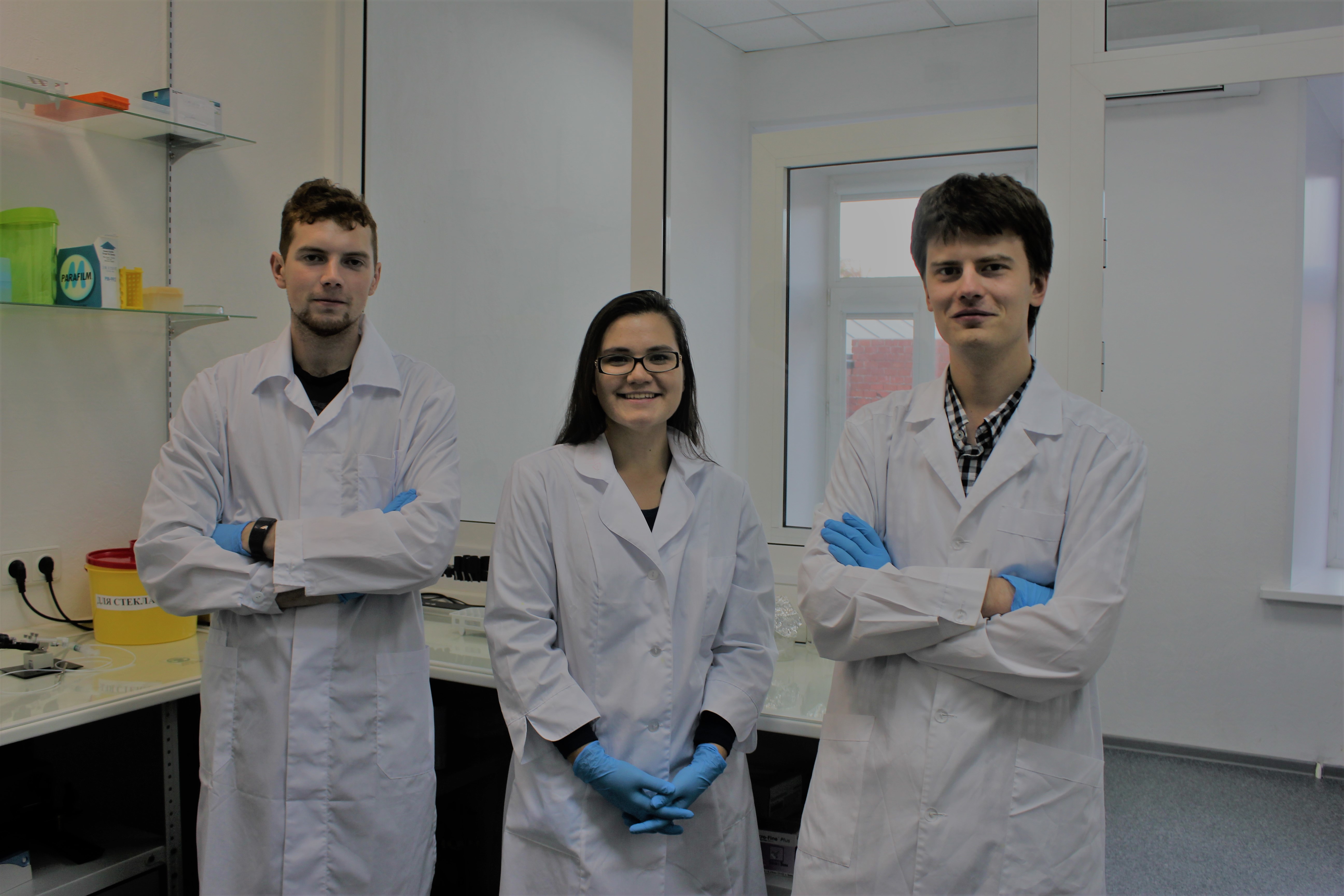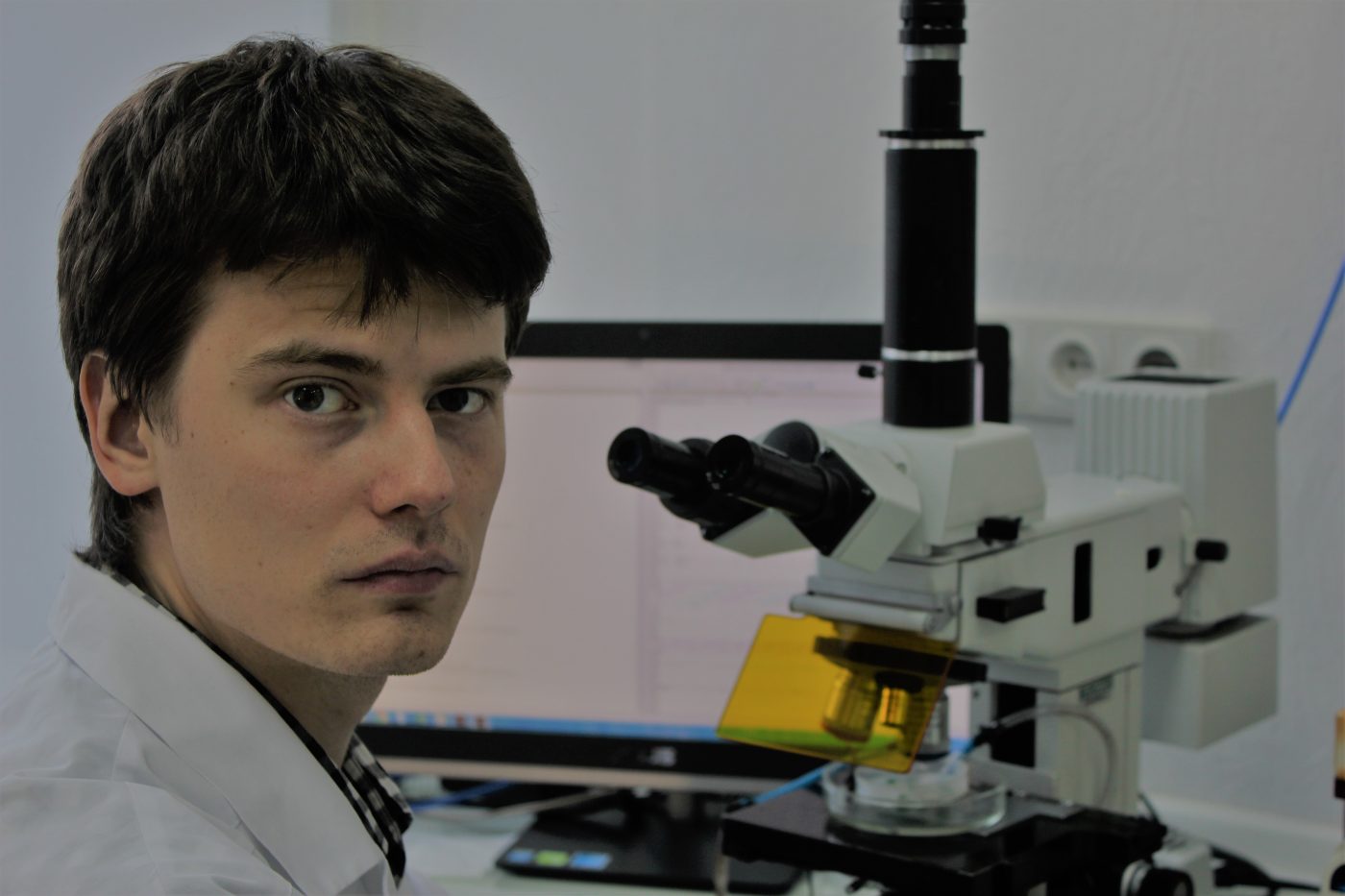Anton Gurkov, winner of the «Baikal Initiative» 2018 grant competition, project manager of the development of implantable fluorescent biosensors, spoke about his research project, shared in detail his thoughts on how science is developing in Baikal and in Russia, and gave practical advice on the Lake Baikal conservation.
Anton, how did you find out about the competition?
I heard about the «Baikal Initiative» competition from my colleague Denis Aksenov-Gribanov, one of the winners of the 2017 competition.
Is this your first experience as a project manager?
I already have experience in small projects realization, but for the first time I am a leader of a full-fledged team of young scientists.
Tell us, what is the relevance of your project and practical significance for Lake Baikal?
In the framework of our project, we plan to develop a new tool that will allow to track quickly and cheaply the content of heavy metals directly in the tissues of a living organism – an implantable optical microsensor. We hope that this tool will be convenient for studying the sensitivity of hydrobionts in general and the Baikal endemics sensitivity in particular to pollution of water bodies with heavy metals. For an ecosystem such as Baikal, this is extremely important, since endemic organisms may be more sensitive to some pollutants, which may require adjustments to existing water quality standards in water bodies. In addition, these microsensors may be a suitable tool for the rapid determination of heavy metals in hydrobionts even in field conditions during environmental monitoring.
Are you working on any other projects at the same time?
Yes, I also participate in the project of the Russian Science Foundation, aimed at finding features in the fight against oxidative stress in the Baikal endemic amphipods. There is a lot of oxygen in Baikal, and we are studying whether the long-term evolution in these conditions led to the development of some interesting adaptive endemics abilities.

How long have you been doing scientific research? How does science develop in Russia in your opinion?
I have been actively working in science since my second year at the university for more than eight years. In my opinion, in Russia now there has been a strong tendency to increase funding for basic and applied science. This is expressed in the appearance of new funds (for example, such as Russian Science Foundation, the Lake Baikal Foundation), and the emergence of various new programs for young scientists. All this already now leads to the improvement of the scientific infrastructure, which significantly contributes to the acceleration of many ongoing researches, the emergence of new high-tech companies and, of course, the return of specialists from other countries. Therefore, I am clearly optimistic about the development of science in Russia.
Do you have any plans for the implementation of research projects soon? Already have any ideas?
We have very ambitious plans to develop several types of implantable microsensors that can be used to monitor a variety of physiological indicators of aquatic animals and other organisms in various fields, from basic scientific research and environmental monitoring to agriculture and biomedical research.
Tell us about your team. What is the contribution of each of your colleagues?
The project team includes the postgraduate student of ISU Ekaterina Shchapova, with whom we have been working for more than three years, as well as two students, Anna Nazarova and Yaroslav Rzhechitsky. Each member has an own working part in the project. Ekaterina and Anna already have experience in the development and use of implantable microsensors, as well as mastering methods for assessing the immune response of animals to an implant. Yaroslav is rather a novice in this area, but he will help us a lot with experimental work with our main object – the Baikal amphipods.

How do you think see your professional growth?
I am focused on writing a doctoral dissertation in the future and forming my own research group. But behind this it should always be the continuous training in various areas and the search for new approaches to solving scientific problems. And the possibilities for this now arise regularly.
What, in your opinion, needs to be done to save Lake Baikal for future generations?
I think that we need a tenable and calm dialogue between the government, scientists and environmental activists. People involved in decision making process and capable of influencing the state of ecosystems in the Baikal region must clearly understand their consequences and risks. The responsibility of the scientific community, in turn, is to shape this vision based on current models.


